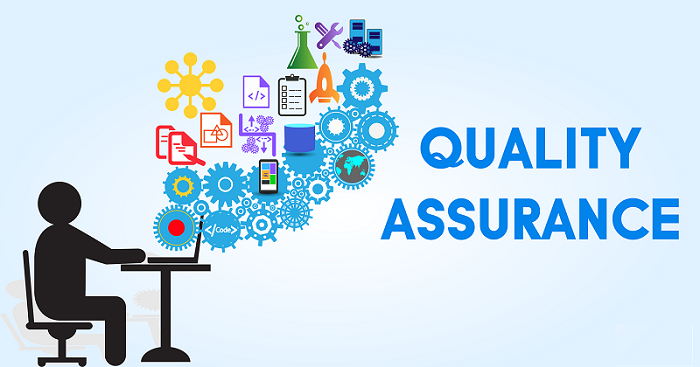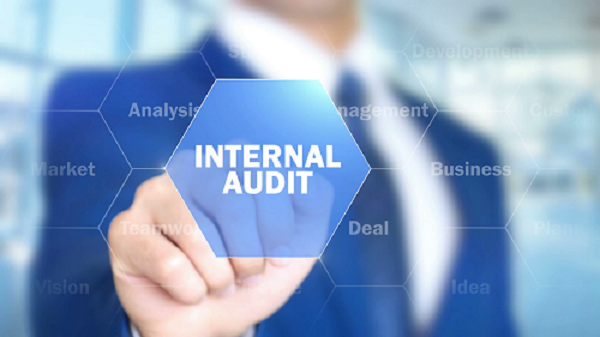To ensure the quality of the products and services, quality assurance advisory services are essential. Investigate their relevance and uses. Strategies aimed at preserving and enhancing the calibre of goods and services are included in quality assurance advisory services.
The Search for Perfection
Quality is essential in today’s competitive market. For a business to succeed, it must continually meet or exceed client expectations.
Roles And Obligations
Expertise in developing, putting into practice, and maintaining quality control procedures is provided by quality assurance advisory services.
Risk Reduction
The likelihood of expensive failures is decreased by theidentification of possible quality concerns and the implementation of mitigating actions.
Making Sure of Compliance
Organisations can benefit from quality assurance advisory services to assist them in following industry standards, rules, and best practices.
Enhancing Customer Satisfaction
Businesses may increase consumer happiness and loyalty by providing high-quality goods and services.
Simplifying Procedures
Quality assurance places a high priority on efficiency, and consulting services can help to optimise performance by streamlining procedures.
Continual Development
The pursuit of perfection and continual improvement are constant goals of quality assurance.
Use in a Variety of Industries
Applications for quality assurance advisory services may be found across a range of sectors, including software development, healthcare, and manufacturing.
Production Excellence
These services promote constant product quality in production, minimising flaws and waste.
Medical Quality Control
They concentrate on patient safety, clinical results, and regulatory compliance in healthcare.
Quality of Software Development
Quality control in software development guarantees that user-friendly, bug-free software programs are produced.
Monetary Services
Quality assurance assures reliable transactions, data security, and regulatory compliance in the financial services industry.
Function of Technology
Quality assurance is greatly aided by technology. It makes it possible to analyse data, automate processes, and monitor processes in real time.
Tools for Quality Assurance
Quality assurance is made easier by a variety of software tools and systems that enable effective testing and monitoring.
Data Insights and Analysis
Data-driven quality assurance offers insightful information for improving processes and reducing risks.
Human Competence
Even if technology is necessary, human judgement is still unmatched for analysing complicated circumstances and making crucial judgements.
Education and Training
Training programmes to improve the abilities and knowledge of the staff are frequently included in quality assurance advisory services.
Customer Opinions
Customer feedback is a crucial source of data for quality assurance, assisting businesses in identifying areas in need of development.
Management of Risk
The assessment and management of quality-related risks through quality assurance advisory services ensures proactive problem-solving.
Efficiency of Cost
By eliminating faults and lowering rework, investing in quality assurance may save money.
Regulatory and Legal Compliance
In sectors including healthcare, banking, and pharmaceuticals, complying with legal requirements and regulations is essential.
Marketplace Competitivity
Businesses are better positioned to compete in the market and gain the trust of their customers with quality assurance.
Global Standards for Quality
To maintain worldwide competitiveness, quality assurance advisory services frequently adhere to international quality standards like ISO.
The Direction of Quality Control
Quality assurance will continue to change and embrace new developments like automation and AI as technology progresses.
Focus on Sustainability
A growing portion of quality assurance is devoted to ensuring that procedures and products are environmentally friendly.
Accepting Technological Progress
The quick development of technology is not immune from Quality Assurance Advisory Services.
Automated Systems’ Function
Processes for quality assurance are being revolutionised by automation, which is also speeding testing and lowering human error.
Applied Machine Learning and Artificial Intelligence
Large datasets are analysed by AI and ML algorithms to find patterns and anomalies, assisting in risk assessment and maintenance.
IoT and Real-time Monitoring
Real-time monitoring of machinery, goods, and processes is made possible by the Internet of Things allowing for prompt corrective action.
Making Decisions Based on Data
Actionable insights from data analytics enable organisations to decide on quality enhancements in a well-informed manner.
Sustainability And Environmentally Friendly Methods
Quality control and environmental initiatives are becoming more and more entwined.
Responsibility For The Environment
Businesses are decreasing waste and their carbon footprint by integrating eco-friendly practises into their quality assurance procedures.
Green Certifications and Standards
Products and procedures are made in accordance with green quality assurance standards and certifications.
Survival And Adaptation
Quality assurance needs to adjust to unforeseen obstacles and disturbances in a world that is changing quickly.
Pandemic Reaction
The COVID-19 outbreak brought attention to the necessity for flexible quality control procedures to address changing demands.
Chain of Supply Resilience
Supply chain resilience is increasingly included in quality assurance, assuring the continuity of key services and goods.
Customer Expectations are Changing
Quality assurance procedures must adapt as client demands do.
Customization and Personalization
Customers expect customised goods and services, necessitating flexible quality control procedures.
Electronic Transformation
To guarantee the dependability and security of digital assets, quality assurance is necessary for digital transformation activities.
The Future of Advisory Services for Quality Assurance
With rising automation, sustainability integration, and adaptability, quality assurance has a bright future.
Automated Robotic Process (RPA)
RPA automates routine quality assurance processes, freeing up human resources for more difficult jobs.
Transparency in the Supply Chain and Blockchain
Enhancing supply chain transparency, lowering fraud, and ensuring product quality are all made possible by blockchain technology.
Virtual Reality (VR) And Augmented Reality (AR)
Enhancing training and inspection procedures with AR and VR increases the precision of quality assessments.
AI-Driven Insights and Predictive Analytics
For risk management and decision-making, predictive analytics and AI-driven insights will become even more important.Quality Assurance Advisory Services are always adapting to meet the demands of a world that is constantly changing.The future of business excellence will be shaped by quality assurance’s embrace of innovation, sustainability, and adaptability.
Understanding Change
To keep up with shifting customer demands, new technological developments, and market dynamics, quality assurance must evolve.These services will continue to be crucial for businesses dedicated to providing high-quality goods and services.As technology reshapes industries, sustainability becomes more important, and customer expectations change
The guardians of perfection, and quality assurance advisory services make sure that companies constantly provide high-quality goods and services. These services are crucial in determining the future direction of enterprises in a time when success is equated with quality.





